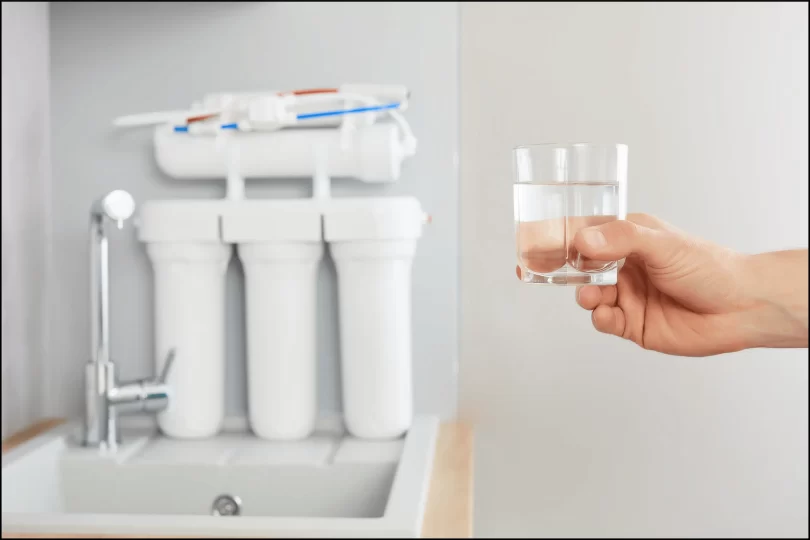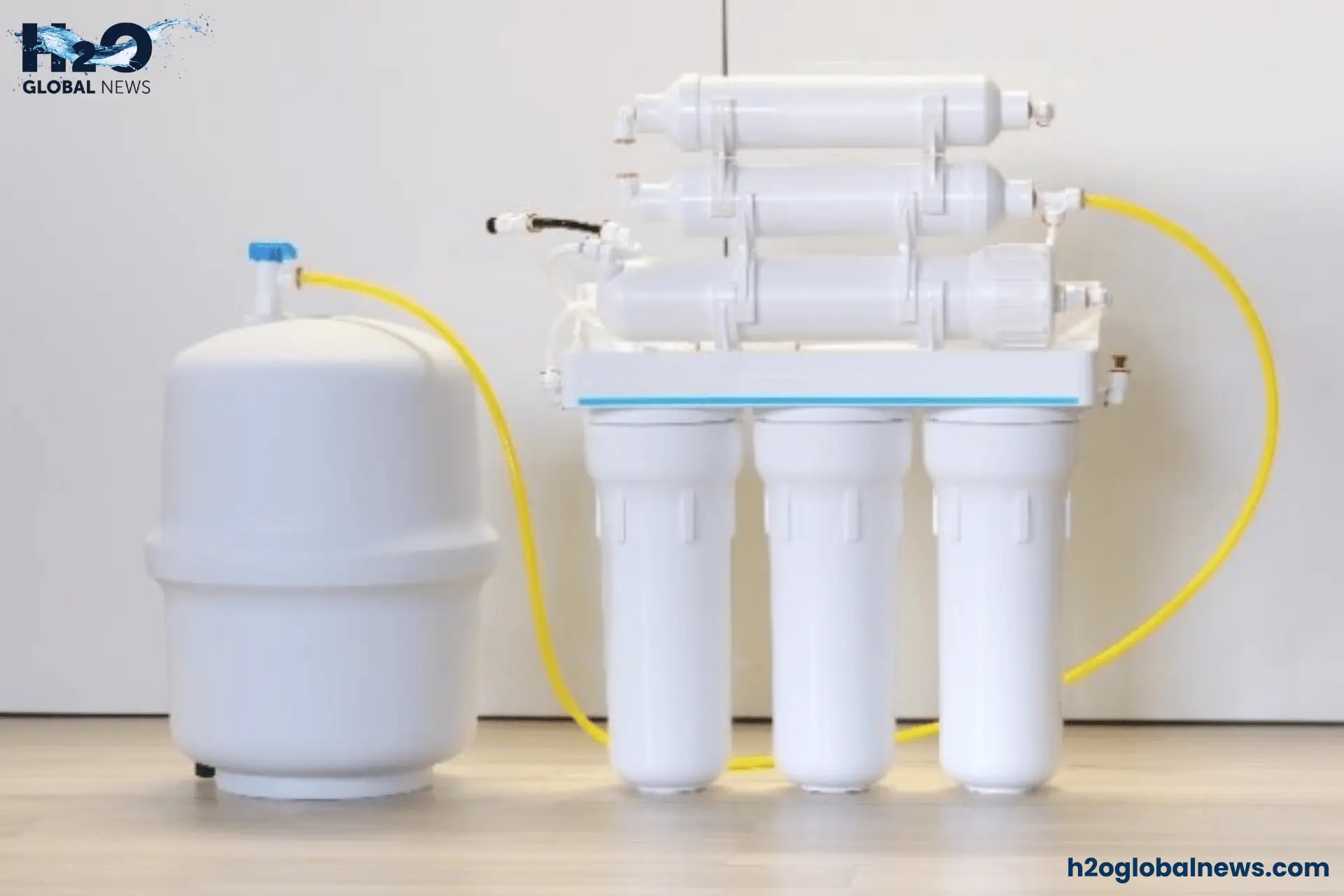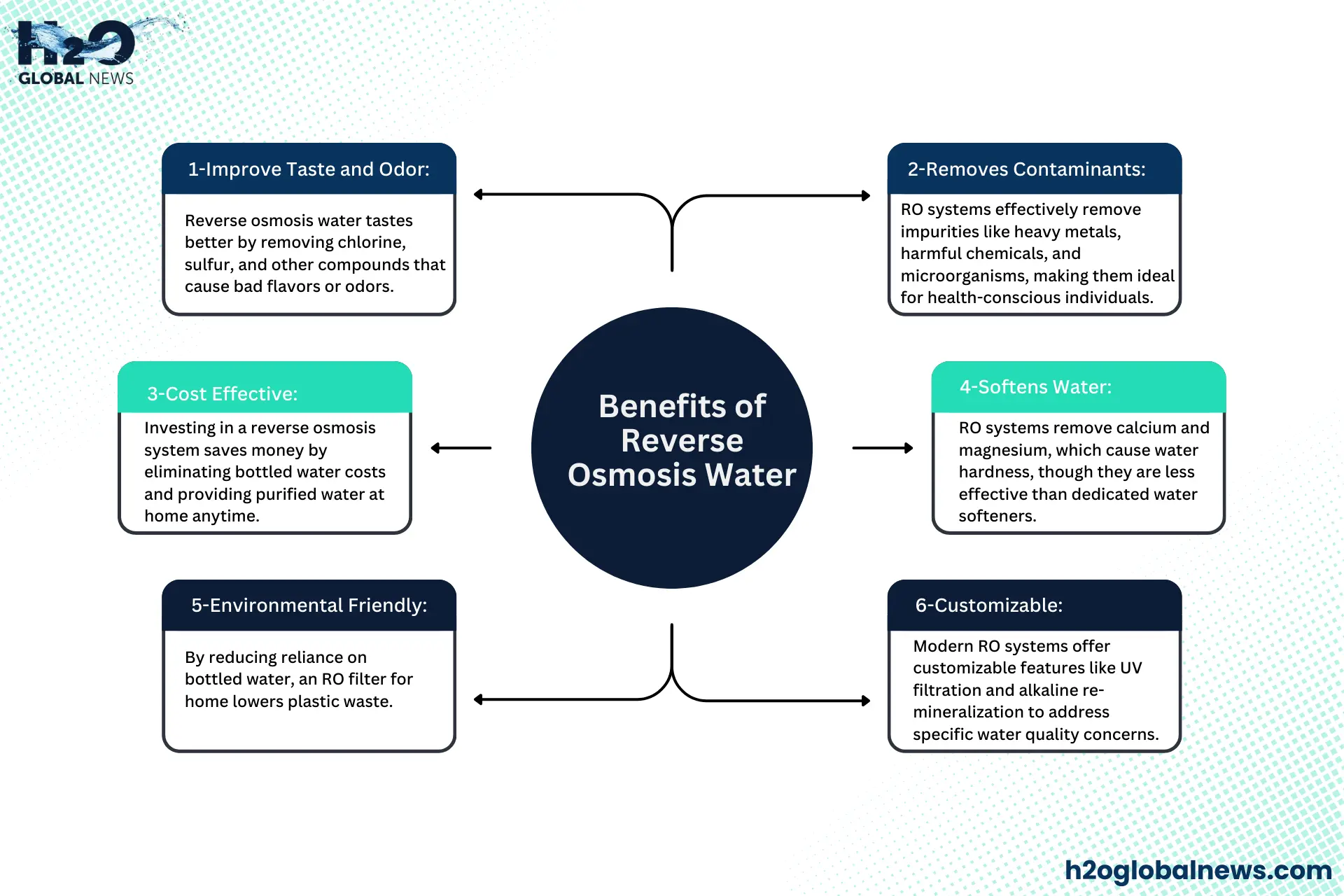Imagine using clean water for drinking and cooking without any tension of having contaminants in it. Sounds relaxing, right? You can have this feeling by using the reverse osmosis filter.
Reverse osmosis water is becoming very popular as a clean and safe option for drinking and cooking. Due to its ability to effectively remove pollutants, reverse osmosis (RO) technology is widely used in households and industries. So, in this article, we’ll discuss the benefits of RO water, how this system works, and why it is a good option for your home.
What is Reverse Osmosis Water?
Reverse osmosis water is filtered using a filtration method that eliminates pollutants such as dissolved salts, microorganisms, and hazardous compounds. The reverse osmosis system filters water using a semi-permeable membrane under high pressure, leaving contaminants behind.
This process produces exceptionally pure water, making it ideal for drinking, cooking, and other household uses. While reverse osmosis and distilled water are purified, distilled water is created through boiling and condensation, whereas RO water undergoes membrane filtration.
How Does Reverse Osmosis System Work?
A reverse osmosis drinking water system operates in several stages to ensure maximum filtration:
- Pre-Filtration: Removes large particles like sediment and chlorine, protecting the RO membrane.
- RO Membrane Filtration: Water is pushed through the semi-permeable membrane, leaving behind impurities like heavy metals, fluoride, and nitrates.
- Post-Filtration: Additional filters enhance water quality by removing residual taste or odor.
- Storage Reservoir: Purified water is stored in a reservoir. Some systems use a bladder to maintain water pressure.
Benefits of Reverse Osmosis Water
1- Improve Taste and Odor:
Reverse osmosis water tastes better because it removes chlorine, sulfur, and other compounds that cause unpleasant flavors or smells.
2- Removes Contaminants
RO systems are highly effective at removing impurities such as:
- Heavy metals like lead and mercury.
- Harmful chemicals like arsenic and fluoride.
- Microorganisms like bacteria and viruses.
This makes reverse osmosis drinking water systems an excellent choice for health-conscious individuals.
3- Cost Effective
Investing in the best reverse osmosis water filter system can save money over time by reducing the need for bottled water. With a reverse osmosis system for home, you get access to purified water anytime without recurring expenses.
4- Softens Water
RO systems remove calcium and magnesium, which cause water hardness, though they are less effective than dedicated water softeners. Understanding the differences between hard and soft water can help determine the best solution for your needs.
5- Environmental Friendly
By reducing reliance on bottled water, an RO filter for home lowers plastic waste.
6- Customizable
Modern RO systems allow you to choose features like UV filtration or alkaline re-mineralization. The best RO filter can be tailored to suit your specific water quality concerns.
Applications of Reverse Osmosis System
Household Use
A reverse osmosis system for home provides safe drinking water for your family. It can cook, make coffee or tea, and even maintain aquariums.
Commercial Use
RO systems are frequently utilized in industries that require pure water, including medicines and electronics production.
How to Choose the Best Reverse Osmosis Water System?
When selecting an RO filter, consider:
- Water Quality: Test your water to determine which contaminants must be removed.
- System Size: A compact RO filter for home is ideal for small spaces.
- Maintenance: Choose a system with easily replaceable filters.
- Certifications: Look for systems certified by NSF or WQA for water quality assurance.
Conclusion
Reverse osmosis water is exceptionally pure, making it a dependable alternative for households and companies. A reverse osmosis drinking water system allows you to enjoy clean, great-tasting water while lowering environmental impact. Whether you’re seeking the best reverse osmosis water filter system or wondering if reverse osmosis softens water, RO technology offers a practical and adaptable solution to modern water quality issues.
Investing in the best RO filter guarantees that you and your family have consistent access to safe, high-quality water.
FAQs
1- Is Reverse Osmosis Water Good for You?
Yes, RO water advantages include its purity and the removal of harmful contaminants. However, since RO water removes beneficial minerals, some systems reintroduce essential minerals for better taste and health.
2- Is Reverse Osmosis Water The Same As Distilled Water?
No. While both are purified, distilled water is created through boiling and condensation, whereas RO water undergoes membrane filtration.
3- Does Reverse Osmosis Soften Water?
Yes, partially. RO systems remove calcium and magnesium, which cause water hardness, although they are less effective than dedicated water softeners.
4- Does the RO Water Filter Reservoir Have a Bladder?
Many RO systems include a storage tank with a bladder to maintain water pressure, but some tankless designs eliminate the need for a reservoir.









